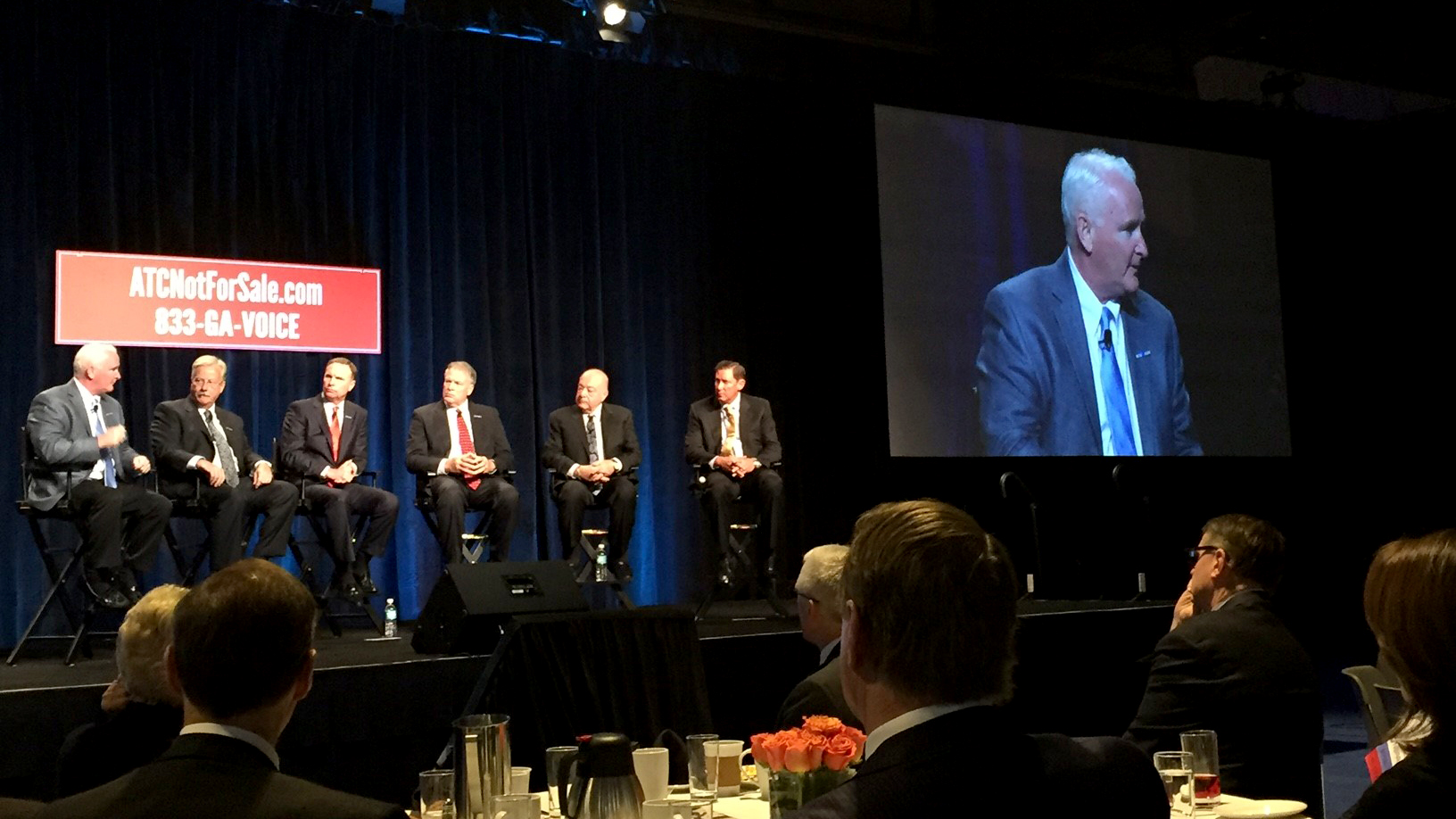GA groups launch campaign against ATC privatization
Leaders of U.S. general aviation organizations are unanimously opposed to so-called air traffic control privatization, and they're launching a media campaign to counter "gross misrepresentations" by the airline-backed groups supporting it.

"Air traffic control privatization is the biggest threat to the future of our industry that we've ever seen," said Ed Bolen, president of the National Business Aviation Association, during a panel discussion among GA leaders Oct. 10 at the NBAA convention in Las Vegas. "It's being pushed by the nation's biggest airlines and some front groups they've created."
Front groups are running TV ads blaming private jet owners for airline delays and the slow pace and high costs of ATC modernization.
Aviation organizations are responding with their own ads in which Apollo 13 astronaut Jim Lovell, "Miracle on the Hudson" Capt. Chesley "Sully" Sullenberger, airshow ace Sean D. Tucker, and others reject the move as a corporate giveaway that would harm U.S. security and ATC efficiency.
AOPA President Mark Baker, a panelist at NBAA, said the aviation groups' efforts are working, and more than 85,000 members and supporters have called their members of Congress to oppose ATC privatization. House Transportation Committee Chairman Bill Shuster (R-Pa.) is the main privatization backer, and he has pushed the measure for years.
"Momentum is on our side," Baker said. "But I worry about fatigue setting in. This is a long game, and this issue isn't going to go away until we have a change in leadership."
The aviation community has created a website to spread information about this complex issue.
Experimental Aircraft Association President Jack Pelton, also an NBAA panelist, called ATC privatization "terrible legislation that could be catastrophic to general aviation."
The Congressional Budget Office estimates ATC privatization will increase the federal deficit by $100 billion. Others who have studied it say it's likely unconstitutional, and it's likely to delay real modernization.
Baker, an executive in the retail industry before joining AOPA, said the proposal now before Congress isn't really "privatization." It's simply a move to create a monopoly whose board is unaccountable to U.S. taxpayers.
"This is not privatization," he said. "This is going to burden business aviation, general aviation, in a very big way."
Shuster had planned to bring the privatization bill to a vote in the House this summer, but strong opposition from the aviation community blocked it.
"Members of Congress are listening," Baker said. "They don't have the votes at this moment."
Bolen told NBAA attendees they shouldn't leave the convention without calling their member of Congress to express their opposition to ATC privatization.
"We've got right on our side," he said. "We've got numbers on our side. But it's not enough. Do not leave this convention without your elected representatives knowing how you feel on this issue."



